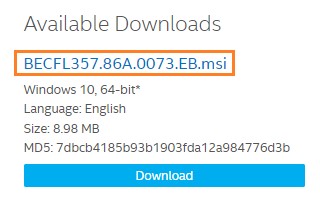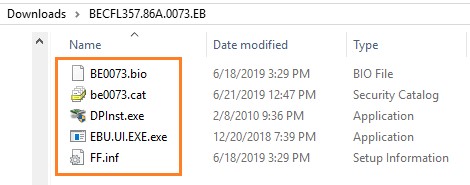How to Perform Remote or Silent Intel NUC BIOS Update Using Express BIOS
Content Type: Maintenance & Performance | Article ID: 000090614 | Last Reviewed: 08/23/2022
I need to update the NUC BIOS without any user interaction.
Runs the Express BIOS update from a batch file without the need for user intervention. This is useful for remote BIOS updates when user interaction is not desired.


| DPInst.exe | |
| /q | Sets the quietInstall flag to ON, which suppresses the display of wizard pages, user dialog boxes, and other user messages that DPInst and Windows generate. |
| /f | Sets the forceIfDriverIsNotBetter flag to ON, which configures DPInst to install a driver on a device even if the driver that is currently installed on the device is a better match than the new driver. |
| /se | Sets the suppressEulaPage flag to ON, which configures DPInst to suppress the display of a EULA page. |
| Shutdown | |
| /r | Restarts the computer after shutdown. |
| /t xx | Sets the time-out period or delay to XXX seconds before a restart or shutdown. This causes a warning to display on the local console. You can specify 0-600 seconds. If you don't use /t, the time-out period is 30 seconds by default. |
| /c "comments" |
Enables you to comment in detail about the reason for the shutdown. You must first provide a reason by using the /d option. You must enclose comments in quotation marks. You can use a maximum of 511 characters.
|
| /f | Forces running applications to close without warning users. Caution: Using the /f option might result in loss of unsaved data. |
| /d p:0:0 | Lists the reason for the system restart or shutdown. The value p indicates that the restart or shutdown is planned. |

If you’re using BitLocker to enable encryption on a system drive:
For more information, see How to Suspend BitLocker Using Command Prompt.